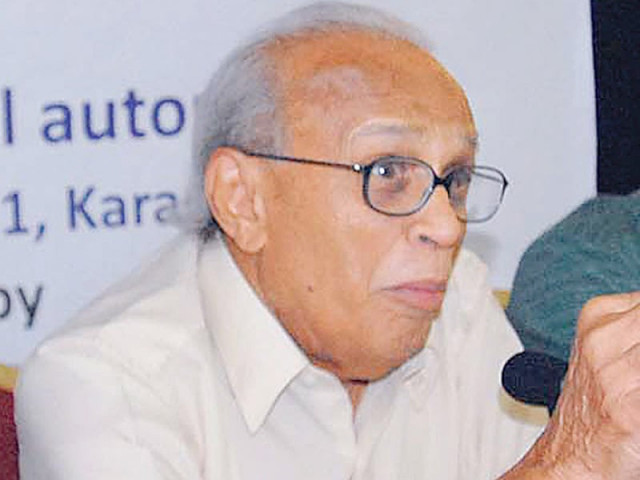The forgotten republic: The country with a high mortality rate of Constitutions
Experts come together to spread awareness on the contract with the state.

Unfortunately, Pakistan has had a high mortality rate of constitutions, quipped Zafarullah Khan, the director of the Centre of Civic Education Pakistan (CCEP), at a session with other experts on constitutional literacy on Friday.
Hence, the public and the republic are not on the same page, added Khan. "We took Islam too seriously, and forgot about the republic of Pakistan," he said. And then, in an attempt to show how religion mattered, he said, "Think, how Lord Nazir would feel if he had to give up Islam to become a member of the parliament in England?"
The CCEP works to create constitutional literacy among the people about their "contract" with the state, otherwise known as the constitution.
Unfortunately, the older generation has not left behind a good legacy for the young people, said the chief guest, Justice (ret'd) Fakhruddin G Ebrahim. "Nowhere else in the world does a state demand inviolable obedience from its citizens [as does] Pakistan."
Violence was endorsed by the state when public floggings began in General Zia's rule. "If the state can do it, then why not the citizens?" asked an emotional Ebrahim. Section 500 of the penal code states that a true statement in public interest is not an offence, but General Zia removed it from the constitution, he added. "People had to lie to be Pakistanis."
Vajeesh Partad, a participant of the session, said, "The minorities gave as many sacrifices for Pakistan as the Muslims. Yet, we are still not equal, even in the constitution." Partad is the Karachi correspondent for the Youth Parliament of Pakistan, and was the only non-Muslim participant. He gave the examples of Mukesh Chawla and Shahbaz Bhatti. "Look how Bhatti paid for his life," he said.
More debate revolved around the post-18th amendment practicalities. Zafarullah Khan lamented the fact that Pakistan took 17 years to draft one constitution and another 33 years to understand its importance. The amendment guarantees policy, legislative, and financial autonomy to the provinces. "The Constitution of Pakistan was never an operational reality," said the director of CCEP. "The 18th amendment is bigger than the 1973 Constitution."
Published in The Express Tribune, July 23rd, 2011.



















COMMENTS
Comments are moderated and generally will be posted if they are on-topic and not abusive.
For more information, please see our Comments FAQ